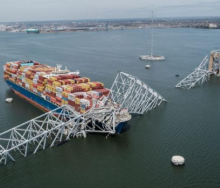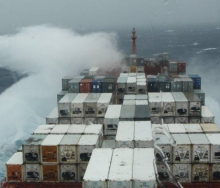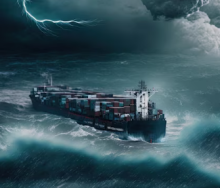The Cargo Integrity Group (CIG) has called on national administrations to carry out and report the findings of their container inspection programmes, and for the International Maritime Organization (IMO) to continue collating and publishing the results in a publicly accessible form to support efforts to improve safety of the carriage of goods by sea.
The CIG is a partnership of industry associations seeking to raise awareness and greater uptake of the IMO/ILO/UNECE Code of Practice for Packing of Cargo Transport Units – often referred to as the CTU Code.
Under resolutions adopted more than 20 years ago, member governments of the IMO agreed to conduct routine inspections of freight containers and the cargo packed in them in a consistent way. The findings are to be submitted annually to the IMO for collation and reporting so that a global picture of levels of compliance with international regulations and recommended practices can be obtained, and any appropriate safety improvements identified.
According to an analysis by partner organisations in the CIG, fewer than 5% of 167 national administrations covered by the agreement are regularly submitting the results of their inspections to the IMO in publicly available form. The organisation warns that the overall low numbers of reports means that insufficient data is available for the IMO or industry to draw reliable conclusions, fundamentally undermining efforts to improve the safety and sustainability of shipments by sea.
“The Cargo Integrity Group understands that other states may be conducting inspections of containerised goods entering and leaving their countries, but are not submitting the findings to the IMO as agreed. Where such reports are not submitted, there is no shared value.”
The association’s partners believe that common and consistent reporting of inspection findings is essential to help target communication and training programmes aimed at improving awareness of the requirements and recommended safe practices for the transport of goods in containers. These include the SOLAS Convention2, the CSC Convention3, the IMDG Code4, and the CTU Code5.
The dangers posed by poorly packed, mishandled or misdeclared containerised shipments has been demonstrated again recently in a series of fires and explosions aboard container ships. While the precise circumstances of these incidents remain under investigation, the CIG believes that measures already in place to help identify possible weaknesses are not being fully implemented and that opportunities for improving compliance standards are being missed.
CIG partner organisations have also expressed concern that the IMO is considering discontinuing the collation and publication of these reports in a form that is easily accessible to industry. The future of this essential function by the global maritime regulatory agency is being decided in meetings taking place this week.
The group has called on national administrations to fully implement their agreed actions on submitting container inspection findings to the IMO to help improve standards in the safe and compliant transport of goods by sea and to follow up on material deficiencies that may be discovered.
In addition, it has called on the IMO to continue to publish the reported findings in a form that allows ready understanding of where efforts to improve awareness of, and compliance with, mandatory regulations need to be directed.













